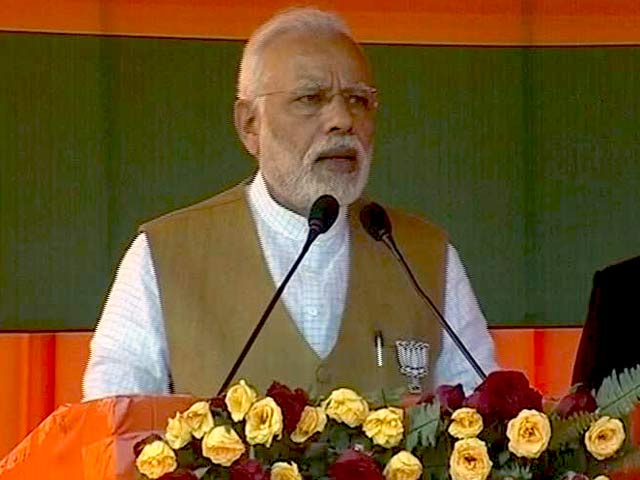Prime minister Modi’s rally in Fatehpur will go down in history as a turning point for Indian politics. The BJP, after being in government for almost three years now, has finally decided to tackle something which has been on their agenda forever- religious discrimination. At the rally, the prime minister called upon state governments to build Hindu crematoriums in villages just as they built Muslim graveyards, to ensure power supply during Hindu festivals just as they did during Muslim festivals, and put an end to these petty forms of religious discrimination.
The Lutyens cartel of pseudo-secular politicians, news-traders and self-proclaimed intellectuals were quick to react. They said the prime minster was being communal, and accused him of dividing the country on religious lines. These men and women should ask themselves what really divides the country in religious lines- whether it is putting an end to religious discrimination or the practice of religious discrimination itself, which they have advocated since the country became independent. Perhaps they should read their articles and tweets aloud just once before posting them. In all probability they would refrain themselves, and save themselves the embarrassment and ridicule.
To accuse the prime minister of being communal when he calls to end religious discrimination isn’t just mind-numbing stupidity, it exposes a perverse mentality. The gang in question has been supportive of policies that were put in place by the Congress Party and other regional outfits, which have perpetuated every form of discrimination. Their doctrine has been quite simple- pamper certain sections of society instead of empowering them to pamper themselves, essentially making them dependent on you and ensuring their loyalty during every election. It is with this perverse mentality that burial grounds are built for Muslims and power supply is ensured during their festivals, privileges Hindus do not enjoy. The reason we have never seen a news-trader question politicians about the dismal socio-economic indicators among Muslims is because it would tantamount to calling their bluffs about all the supposed empowerment in the last sixty years.
Some news-traders went as far as denying the facts put forth by the prime minister. They simply refused to admit that the minority community enjoyed privileges that the majority did not, or that this phenomenon amounted to any sort of discrimination. But the advantage of living in the twenty-first century is that one doesn’t have to take the media’s word as gospel, and that unlike in the past we have several means of putting out the truth for people to see whenever news-traders lie through their teeth. When the lies of some leftist editors began adorning Twitter timelines, people were quick to point out their factual inaccuracies. It emerged that discrimination did exist, and that charges of religious discrimination in power supply were investigated by the central government and found to be true. How these leftist editors jumped to attack Narendra Modi and defend their political masters without even grasping the facts entirely, is testament of a post-truth world.
The prime minister’s remarks have brought the entire secular-communal debate to the fore once again. This is another opportunity for us to remind ourselves of the perversions of a Congress Party led establishment. The concept of secularism initially entailed a clear demarcation between religion and state. The Congress Party fancied this tag of “progressivism”, but at the same time, it could not quite practise secularism because that would have decimated them politically. So, the meaning of secularism conveniently changed in India. It came to entail a clear demarcation between the government and the majority religion. In time, the new definition was taken to its logical conclusion. Secularism, which initially meant the separation of state and religion, came to mean the appeasement of the minority religion by the state. So more than sixty years after independence, those who appease the minority religion are the seculars and those who call for an end to religious discrimination are the communals. And of course, the news-traders and the self-proclaimed intellectuals see nothing absurd in this scheme of things.
The Congress Party is dying a slow death, just like its sister the mainstream media. The Lutyens cocktail circuit does not get along with the new establishment, and will be relegated to its rightful place. What the cartel thinks, says and does, doesn’t hold the slightest importance. After the election cycle comes to an end, the government will begin consultations on the issue of triple talaq and polygamy among the Muslims. With additional right-thinking state governments across the country (pun-intended), petty religious discrimination will come to an end. Perhaps, if the government is bold enough, the country might move towards a Uniform Civil Code.
It would be nice if the prime minster taught the old establishment what secularism means by giving them a practical demonstration.
